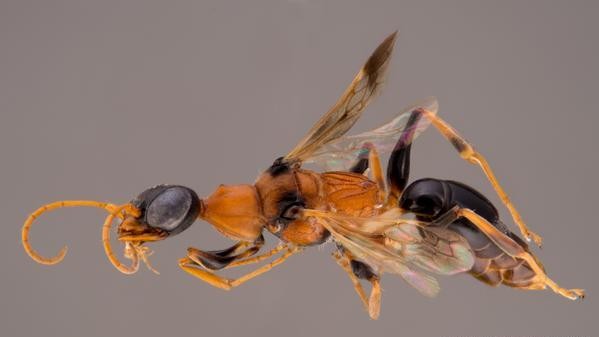World Wildlife Foundation (WWF) scientists have discovered more than 100 new species in the Greater Mekong area, including a wasp species that received a name from Harry Potter’s character.
Dubbed as the Dementor, a popular dark non-being creature in the Harry Potter series, the wasp belongs to one of the 139 new species that were included in the recent study of Greater Mekong in Southeast Asia. Greater Mekong is the region that is located across Cambodia, Laos, Myanmar, Thailand and Vietnam.
Ampulex dementor or simply Dementor was discovered in Thailand to be specific. This newly discovered insect has been using its body chemistry to turn cockroaches into zombies. It literally takes the soul of its victims and eats them alive, UPI reported.
Its strategy makes its prey motionless as it injects toxins directly into the belly, paralyzing the victims before they are served as food. Most of Dementor’s victims are roaches and beetles. Though roaches are capable of moving, WWF explained that it cannot direct its own body, thus the wasp can drag it to a safe place before indulging to the prey’s body.
WWF compiled its new study titled "Magical Mekong", which chronicles the newly discovered species found in throughout the region. According to BBC, the team has found a total of 90 new plants, 23 reptiles, 16 amphibians, nine fish, and one mammal and in 2014, they were officially classified.
Researchers have also discovered a new species of stick insect in Vietnam, which is 21 inches long. They suggest that this insect is the second largest insect in the world.
In addition, scientists discovered color-changing frog long-fanged bat, and the 10,000th reptile species. The bat was known as Hypsugo dolichodon and its home has not yet discovered. In Myanmar, two new species of crocodile were found.
They have also discovered a pair of orchid species and were found to be on sale in Chatuchak Market in Bangkok before they were classified.
This research also revealed that several of the species are in danger of extinction because of the disturbance of humans to their habitat and the growing demand of human for exotic woods and meats.


